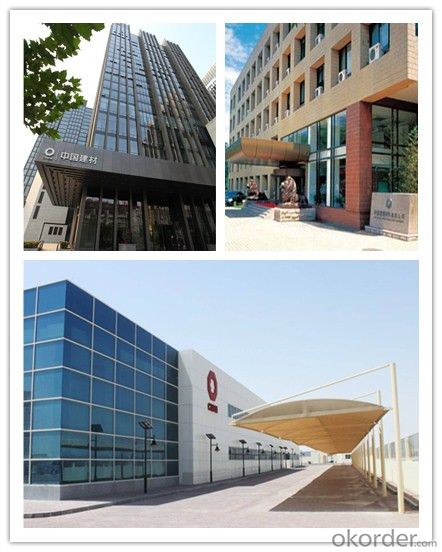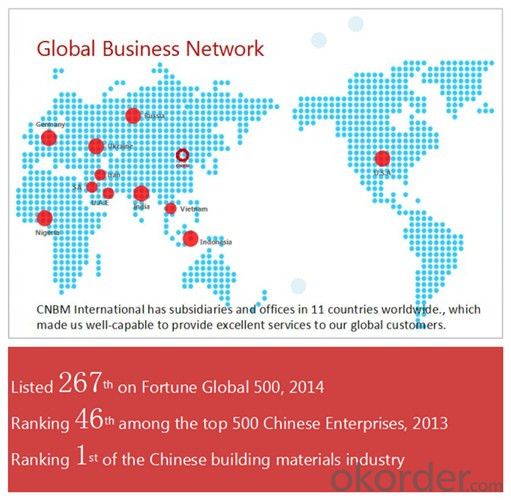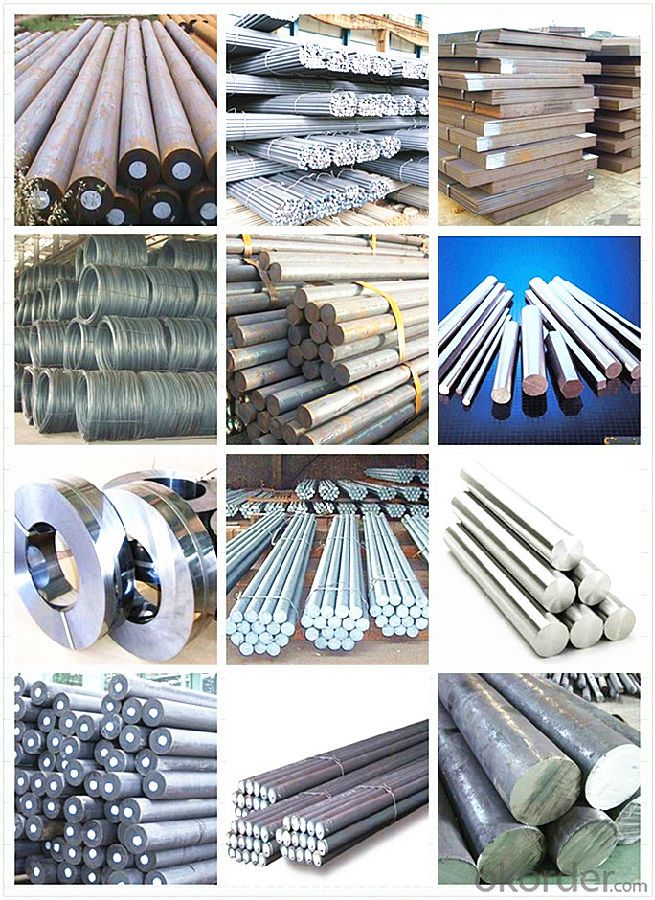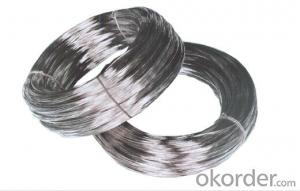Grade 1.4104 Stainless Steel Wire Rod 12crmos17/sus430
- Loading Port:
- Tianjin
- Payment Terms:
- TT OR LC
- Min Order Qty:
- 1 m.t.
- Supply Capability:
- 10000 m.t./month
OKorder Service Pledge
Quality Product, Order Online Tracking, Timely Delivery
OKorder Financial Service
Credit Rating, Credit Services, Credit Purchasing
You Might Also Like
Item specifice
Type:
Carbon Steel,Spring Steel,Bearing Steel,Gear Steel,Deformed Steel,Stainless Steel,Alloy Steel
Shape:
Steel Coil,Steel Sheet,Steel Wire Rod,Steel Flat Bar,Steel Square Bar,Steel Angle,Steel Round Bar,Steel Billets
Technique:
Hot Rolled,Cold Rolled,Cold Drawn,ERW,Forged,Saw,Extruded,EFW,Spring
Surface Treatment:
Galvanized,Coated,Copper Coated,Color Coated,Oiled,Dry,Chromed Passivation,Polished,Bright,Black,PVDF Coated
Certification:
ISO,SGS,BV,IBR,RoHS,CE,API,BSI,UL
Thickness:
3.0mm ~ 10.0mm
Width:
3.0mm ~ 10.0mm
Length:
In coils
Outer Diameter:
3.0mm ~ 10.0mm
Net Weight:
2m.t.
Packaging:
Seaworthy packaging
Grade 1.4104 Stainless Steel Wire Rod 12crmos17/sus430
Detailed Information of the Grade 1.4104 Stainless Steel Wire Rod 12crmos17/sus430
| Name | Hot Rolled High Carbon Wire Rod |
| Shape | Round Bar/Square Bar/Flat Bar/Plate/Wire |
| Standard | GB/ASTM/SAE/AISI/DIN/JIS/EN/BS |
| Surface Treatment: | Black/Peeling/Polished/Machined |
| Delivery Condition: | Hot Rolled or Forged/Peeled or Black Surface |
| Test | SGS/UT 100% Elements Testing |
| Certificate: | ISO/Mill Certificate |
| Service: | 24 hours online service / |
| more than 20 years trading and manufacture | |
| Quality Assurance: | the third party inspection, such as SGS, BV, TUV…etc. is acceptable |
| Packaging Details: | Seaworthy Packaging or as per customer's packing instruction |
Chemical Composition of the Grade 1.4104 Stainless Steel Wire Rod 12crmos17/sus430
| Material | C %(≤) | Mn % (≤) | P % (≤) | S % (≤) | Si % (≤) | Cr% (≤) |
| 430 | 0.08 | 1 | 0.04 | 0.03 | 1 | 16.00-18.00 |
Company Introduction the Grade 1.4104 Stainless Steel Wire Rod 12crmos17/sus430
CNBM International Corporation is the most import and export platform of CNBM group(China National Building Material Group Corporation) ,which is a state-owned enterprise, ranked in 270th of Fortune Global 500 in 2015.
With its advantages, CNBM International are mainly concentrate on Cement, Glass, Iron and Steel, Ceramics industries and devotes herself for supplying high quality series of refractories as well as technical consultancies and logistics solution.


| After-sale service | CNBM provides the services and support you need for every step of our cooperation. We’re the business partners you can trust; you can relax and get on with doing business. |
| For any problem, please kindly contact us at any your convenient time, we’ll reply you in our first priority within 24 hours | |
| Advantages | Industry experience over 20 years. |
| Shipment of goods -More than 70 countries worldwide. | |
| The most convenient transport and prompt delivery. | |
| Competitive price with best service. | |
| High technical production line with top quality products. | |
| High reputation based on best quality products. |
Packaging & Delivery the Grade 1.4104 Stainless Steel Wire Rod 12crmos17/sus430
| Packaging Detail | Sea worthy packing /as per customer's packing instruction |
| Delivery Detail | 15 ~ 40 days after receiving the deposit |
Products Show

FAQ:
| Are you a trader or manufacturer? | Manufacturer |
| What’s the MOQ? | 3 metric ton |
| What’s your delivery time? | 15-35 days after downpayment received |
| Do you Accept OEM service? | Yes |
| what’s your delivery terms? | FOB/CFR/CIF |
| What's the Payment Terms? | 30% as deposit,70% before shipment by T/T |
| Western Union acceptable for small amount. | |
| L/C acceptable for large amount. | |
| Scrow ,Paybal,Alipay are also ok | |
| Why choose us? | Chose happens because of quality, then price, We can give you both. |
| Additionally, we can also offer professional products inquiry, products knowledge train (for agents), smooth goods delivery, excellent customer solution proposals. | |
| What's your available port of Shipment? | Main Port, China |
| What’s your featured services? | Our service formula: good quality+ good price+ good service=customer's trust |
| Where are your Market? | Covering more than 160 countries in the world |
- Q:How does bearing steel contribute to the manufacturing of bearings?
- Bearing steel is a crucial material in the manufacturing of bearings as it provides the necessary strength, durability, and wear resistance required for the efficient operation of bearings. The high carbon content in bearing steel enhances its hardness and strength, ensuring that the bearings can withstand heavy loads, high speeds, and extreme operating conditions. Additionally, the unique composition and heat treatment of bearing steel enable it to maintain dimensional stability and minimize friction, leading to improved performance and longer life of the bearings.
- Q:How does special steel perform in corrosive chemical environments?
- Special steel, also known as stainless steel, performs exceptionally well in corrosive chemical environments. This is primarily due to its unique composition which includes a high amount of chromium, typically above 10.5%. Chromium forms a passive oxide layer on the surface of the steel, which acts as a protective barrier against corrosion. The passive oxide layer is highly resistant to attack from various corrosive substances, including acids, alkalis, and salts. This makes special steel highly reliable and durable in chemical environments where corrosion is a significant concern. Additionally, special steel exhibits excellent resistance to pitting corrosion, which is a localized form of corrosion that can occur in aggressive chemical environments. This resistance is attributed to the presence of other alloying elements such as nickel and molybdenum, which further enhance the steel's corrosion resistance properties. Furthermore, special steel offers excellent strength and toughness, making it suitable for various industrial applications, including chemical processing plants, oil and gas refineries, and pharmaceutical industries. It can withstand high temperatures and pressures, ensuring long-term performance and reliability even in harsh chemical environments. However, it is essential to note that the performance of special steel in corrosive chemical environments can vary depending on the specific grade and composition of the steel. It is crucial to select the appropriate grade of special steel that is specifically designed for the intended chemical environment to ensure optimal performance and longevity.
- Q:What are the different classifications of special steel?
- Special steel is a broad term that encompasses various types of steel alloys that possess unique properties and characteristics, making them suitable for specific applications. There are several classifications of special steel, including: 1. Stainless Steel: This type of special steel contains a high percentage of chromium, which provides excellent corrosion resistance. It also typically contains other elements like nickel and molybdenum, enhancing its strength and durability. Stainless steel is commonly used in applications that require resistance to oxidation, heat, chemicals, and wear, such as in food processing, medical devices, and construction. 2. Tool Steel: Tool steel is specifically designed for manufacturing tools, dies, and molds. It is known for its exceptional hardness, wear resistance, and toughness. Tool steel is further classified into several subcategories, including high-speed steel (HSS), cold work steel, hot work steel, and plastic mold steel, each tailored for specific tooling applications. 3. Alloy Steel: Alloy steel is a type of special steel that contains additional alloying elements apart from carbon. These elements, such as manganese, silicon, nickel, chromium, and molybdenum, are added to enhance specific properties like strength, toughness, hardenability, and corrosion resistance. Alloy steels are used in various applications, such as automotive components, machinery, construction, and aerospace. 4. Spring Steel: This type of special steel is specifically designed to withstand repeated bending or twisting without permanently deforming. Spring steel has excellent elasticity and fatigue resistance, making it suitable for applications such as springs, suspension systems, and high-performance automotive parts. 5. Bearing Steel: Bearing steel is engineered to provide high hardness, wear resistance, and dimensional stability necessary for manufacturing bearings. It typically contains high levels of carbon, chromium, and other alloying elements, ensuring the required mechanical properties for reliable and long-lasting bearings. 6. Electrical Steel: Electrical steel, also known as silicon steel, is specifically designed for electrical applications. It possesses low electrical resistivity and high magnetic permeability, allowing it to efficiently conduct and transform electrical energy. Electrical steel is commonly used in transformers, electric motors, and generators. These classifications of special steel highlight the versatility and tailored properties of different steel alloys, enabling their application in a wide range of industries and specialized uses.
- Q:Can special steel be used in corrosive environments?
- Yes, special steel can be used in corrosive environments. Special types of steel, such as stainless steel or corrosion-resistant alloys, are designed to withstand corrosion caused by exposure to moisture, chemicals, or other corrosive elements. These materials have a higher resistance to rust and corrosion, making them suitable for applications in corrosive environments like marine environments, chemical plants, or oil and gas facilities.
- Q:Can special steel be used for making chemical processing equipment?
- Yes, special steel can be used for making chemical processing equipment. Special steels, such as stainless steel, are often preferred for such applications due to their excellent corrosion resistance, high temperature resistance, and durability. Chemical processing equipment often deals with corrosive substances or operates at high temperatures and pressures, making it essential to use materials that can withstand these conditions. Special steel alloys are specifically designed to have superior resistance to corrosion, including resistance to acids, alkalis, and other aggressive chemicals. Additionally, these steels can maintain their mechanical properties even at elevated temperatures, ensuring the integrity and safety of the equipment. Therefore, special steel is a suitable choice for making chemical processing equipment.
- Q:How does special steel contribute to the manufacturing of automotive engine components?
- Special steel plays a crucial role in the manufacturing of automotive engine components by providing enhanced strength, durability, and performance. Due to its unique properties, special steel is used in various critical engine parts, such as crankshafts, camshafts, connecting rods, valve springs, and cylinder heads. One of the primary benefits of special steel in automotive engine components is its exceptional strength. Engine parts made from special steel can withstand high stress, heavy loads, and extreme temperatures without deformation or failure. This strength ensures that the engine operates efficiently and reliably, even under demanding conditions. Moreover, special steel offers superior durability, which is essential for the longevity and performance of engine components. Special steel's resistance to wear, corrosion, and fatigue ensures that the engine parts maintain their functionality over an extended period. This durability translates into increased lifespan and reduced maintenance requirements for the engine, ultimately leading to higher customer satisfaction and lower costs for vehicle owners. The use of special steel in automotive engine components also contributes to improved performance. Special steel allows for the creation of lightweight components, reducing the overall weight of the engine and improving fuel efficiency. Additionally, the high precision and dimensional accuracy achievable with special steel manufacturing processes result in better engine performance, reduced friction, and improved power output. Furthermore, special steel offers excellent machinability, which simplifies the manufacturing process of engine components. Its ability to be easily formed, cut, and shaped enables the production of complex designs and intricate features, leading to enhanced efficiency and performance in the final product. In summary, special steel is vital in the manufacturing of automotive engine components due to its exceptional strength, durability, and performance. Its usage results in engines that are more reliable, efficient, and long-lasting, ultimately contributing to the overall quality and satisfaction of vehicles.
- Q:How does special steel perform in impact loading conditions?
- Known for its exceptional performance in impact loading conditions, special steel possesses remarkable strength, toughness, and resistance to deformation, thanks to its unique composition and manufacturing process. By effectively absorbing and dissipating energy, special steel minimizes the risk of catastrophic failure or damage when subjected to impact loading. The high strength of special steel enables it to withstand high impact forces without experiencing significant deformation or fracture, making it particularly suitable for applications where impact loading is prevalent, such as in the construction of heavy machinery, automotive components, and structural elements. In addition to its strength, special steel's toughness plays a crucial role in its performance during impact loading conditions. With excellent fracture toughness, special steel can resist crack propagation and absorb impact energy without fracturing, ensuring that it can withstand sudden and severe impacts without compromising its structural integrity. Furthermore, special steel is often subjected to treatments that enhance its resistance to impact loading conditions. Processes like heat treatment, forging, and quenching and tempering can increase the material's hardness and strength, further improving its ability to withstand impact forces. To summarize, special steel excels in impact loading conditions due to its high strength, toughness, and resistance to deformation. Its efficient energy absorption and dissipation, coupled with its resistance to fracture, make it an ideal choice for applications where impact loading is a concern.
- Q:What are the advantages of using special steel in various industries?
- Special steel offers several advantages in various industries. Firstly, it has superior strength and durability, making it ideal for applications that require high resistance to wear, impact, and corrosion. This enables the production of longer-lasting and more reliable components, reducing maintenance and replacement costs. Additionally, special steel can be tailored to meet specific requirements, such as temperature resistance or magnetic properties, allowing for customization in different industries. Furthermore, its excellent machinability and weldability make it easier to work with and shape into complex forms, enhancing design flexibility. Finally, special steel's ability to withstand extreme conditions and harsh environments makes it ideal for industries like aerospace, automotive, construction, energy, and manufacturing. Overall, the use of special steel enhances performance, efficiency, and longevity in various industrial applications.
- Q:How does special steel contribute to the telecommunications aftermarket industry?
- Special steel plays a crucial role in the telecommunications aftermarket industry by providing the necessary materials for the manufacturing and maintenance of various telecommunications equipment. This type of steel is specifically designed to possess exceptional properties, such as high strength, corrosion resistance, and durability, which are essential for the demanding conditions of the telecommunications sector. One of the main contributions of special steel to the telecommunications aftermarket industry is its use in the production of communication towers and transmission structures. These structures need to withstand extreme weather conditions, including strong winds and heavy loads, while also providing reliable support for antennas and other equipment. Special steel is capable of meeting these requirements, ensuring the longevity and stability of communication towers. Furthermore, special steel is extensively used in the manufacturing of cables and wires used in telecommunications systems. These cables need to transmit signals without any loss or interference, and the unique properties of special steel, such as high electrical conductivity and low resistance, make it an ideal material for this purpose. The use of special steel in cables helps maintain the quality and efficiency of telecommunications networks. Another significant contribution of special steel is in the production of equipment enclosures and cabinets. These enclosures provide protection to sensitive electronic components from environmental factors, such as moisture, dust, and extreme temperatures. Special steel, with its corrosion-resistant properties, ensures the longevity and reliability of these enclosures, safeguarding the valuable equipment inside. Moreover, special steel is also utilized in the manufacturing of various components and accessories used in the telecommunications aftermarket industry. These include connectors, brackets, and hardware, which are essential for assembling and maintaining telecommunications equipment. Special steel's high strength and durability make it a preferred choice for these components, ensuring their long-lasting performance. In conclusion, special steel contributes significantly to the telecommunications aftermarket industry by providing the necessary materials for the manufacturing and maintenance of various telecommunications equipment. Its exceptional properties, including high strength, corrosion resistance, and durability, make it an ideal choice for communication towers, cables, enclosures, and various components. By utilizing special steel, the telecommunications industry can ensure the reliability, efficiency, and longevity of its equipment, ultimately benefiting both service providers and end-users.
- Q:How does special steel contribute to the aviation industry?
- The aviation industry heavily relies on special steel to guarantee the safety, performance, and efficiency of aircraft. Firstly, critical aircraft components like landing gears, engine parts, and structural elements are manufactured using special steel. These components necessitate materials with exceptional strength, durability, and resistance to fatigue and corrosion. Special steel, such as stainless steel or nickel-based alloys, possesses these properties, ensuring the structural integrity and safety of aircraft. Secondly, special steel allows for the development of lightweight aircraft, a crucial requirement in the aviation industry. By employing high-strength alloys, manufacturers can decrease the weight of aircraft components without compromising their structural integrity. This leads to fuel savings, increased range, and enhanced payload capacity, ultimately improving the efficiency of aircraft operations. Additionally, special steel significantly enhances the performance and reliability of aircraft engines. Steel alloys with excellent mechanical properties and resistance to high temperatures are utilized in producing turbine blades, combustion chambers, and exhaust systems. These components endure extreme temperatures and stress levels, enabling engines to operate efficiently and reliably. Furthermore, special steel contributes to the aviation industry by enabling innovative designs and technologies. With continuous advancements in material science, manufacturers are able to develop new steel alloys with improved properties like enhanced resistance to wear, thermal stability, or fatigue resistance. These innovations unlock new possibilities for aircraft design, performance, and fuel efficiency. In conclusion, the aviation industry heavily relies on special steel to ensure the safety, performance, and efficiency of aircraft. Its utilization in critical components, lightweight construction, engine manufacturing, and technological advancements drives the progress of aviation, resulting in safer, more efficient, and more sustainable air travel.
1. Manufacturer Overview |
|
|---|---|
| Location | |
| Year Established | |
| Annual Output Value | |
| Main Markets | |
| Company Certifications | |
2. Manufacturer Certificates |
|
|---|---|
| a) Certification Name | |
| Range | |
| Reference | |
| Validity Period | |
3. Manufacturer Capability |
|
|---|---|
| a)Trade Capacity | |
| Nearest Port | |
| Export Percentage | |
| No.of Employees in Trade Department | |
| Language Spoken: | |
| b)Factory Information | |
| Factory Size: | |
| No. of Production Lines | |
| Contract Manufacturing | |
| Product Price Range | |
Send your message to us
Grade 1.4104 Stainless Steel Wire Rod 12crmos17/sus430
- Loading Port:
- Tianjin
- Payment Terms:
- TT OR LC
- Min Order Qty:
- 1 m.t.
- Supply Capability:
- 10000 m.t./month
OKorder Service Pledge
Quality Product, Order Online Tracking, Timely Delivery
OKorder Financial Service
Credit Rating, Credit Services, Credit Purchasing
Similar products
New products
Hot products
Related keywords

































